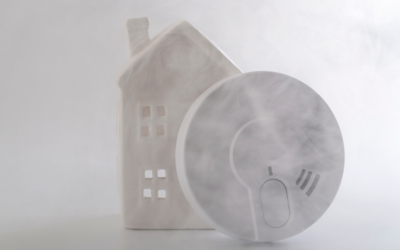As the chill of winter fades away and the landscape of the Gainsville area bursts into bloom, many residents eagerly anticipate the arrival of spring. However, for those plagued by seasonal allergies, this time of year can bring about a different kind of anticipation—one filled with sneezing, itchy eyes, and congestion.
This comprehensive guide will explore the intricacies of surviving spring allergies in Gainsville. From understanding the common allergens that permeate the air to examining their impact on individuals’ health, we’ll equip you with the knowledge to navigate allergy season confidently.
Understanding Spring Allergens in Gainesville, Texas
Gainesville, Texas, situated in the rolling plains of North Texas, experiences its unique set of allergens during the spring months. Several factors contribute to the region’s susceptibility to allergies, making springtime particularly challenging for residents.
Abundant Pollen Sources: The region’s diverse flora includes a variety of pollen-producing plants that thrive in the fertile soils and moderate climate of North Texas. Oak, cedar, and various grasses are among the primary culprits responsible for triggering allergic reactions in many individuals as spring arrives. These plants release copious amounts of pollen into the air, creating a seasonal onslaught that can be especially pronounced in areas with abundant vegetation.
Dynamic Climate: Gainesville, Texas, experiences a dynamic climate characterized by fluctuating temperatures and sporadic rainfall in spring. These weather patterns create ideal conditions for mold spores to thrive, adding to residents’ allergen burden. Warm, humid days followed by cool nights provide the perfect environment for mold growth, particularly in damp, shaded areas. As mold colonies proliferate, they release spores into the air, further exacerbating allergy symptoms for many residents.
Topographical Influence: While Gainesville lacks the rugged terrain of the Ozark Mountains, it still experiences microclimates that influence the distribution of allergens. Valleys and low-lying areas can trap pollen and mold spores, intensifying exposure for residents in these locations. Additionally, the surrounding agricultural landscape, with its vast expanses of farmland and fields, can contribute to airborne allergens such as pollen from crops and weeds, further complicating allergy management for residents.
Urbanization Impact: The rapid urbanization of Gainesville and its surrounding areas has led to changes in land use, disrupting natural ecosystems and altering the distribution of allergenic plants and fungi. Urban areas may experience higher concentrations of airborne allergens due to landscaping practices and pollution. Trees and shrubs planted for landscaping, grassy lawns, and ornamental plants can contribute to pollen levels in urban environments. Pollution from vehicle emissions and industrial activities can also exacerbate allergy symptoms, particularly for residents living in densely populated areas.
In conclusion, Gainesville, Texas, presents its own unique challenges when it comes to spring allergies. From abundant pollen sources to dynamic weather patterns and the influence of urbanization, residents must proactively manage allergy symptoms during the spring months. By understanding the specific allergens prevalent in the area and implementing appropriate mitigation strategies, individuals can minimize exposure and enjoy a healthier, more comfortable spring season.
Impact of These Allergens on Allergy Sufferers
The symptoms can be varied and disruptive for those susceptible to spring allergies. The most common complaints are sneezing fits, nasal congestion, itchy and watery eyes, scratchy throat, and coughing. The severity of symptoms can vary from person to person, with some experiencing mild discomfort while others endure more pronounced reactions that significantly impact their quality of life. Prolonged exposure to allergens can also exacerbate respiratory conditions such as asthma and bronchitis, leading to an increased risk of sinus infections and ear infections.
Strategies for Managing Spring Allergies
Surviving spring allergies in Northwest Arkansas requires a multifaceted approach that combines awareness, prevention, and effective symptom management.
Indoor Allergen Reduction: Creating a haven from outdoor allergens starts indoors. Regular vacuuming, dusting, and washing bedding in hot water can help minimize exposure to dust mites. Investing in allergen-proof pillowcases and mattress covers can provide an additional barrier. Maintaining indoor humidity levels below 50% can help prevent mold growth, while using high-efficiency air filters in HVAC systems can trap airborne allergens.
Pollen Avoidance: Monitoring local pollen counts and adjusting outdoor activities accordingly can help minimize exposure to pollen. Staying indoors during peak pollen hours, typically in the early morning and late afternoon, and keeping windows closed can reduce pollen infiltration into indoor spaces. Utilizing air conditioning with proper filtration can help remove pollen from indoor air.
Nasal Irrigation and Medication: Nasal irrigation with saline solution can help flush out allergens from nasal passages, relieving congestion and nasal symptoms. Over-the-counter antihistamines, decongestants, and nasal corticosteroids can help alleviate allergy symptoms. However, before adding medication or natural remedies to your regimen, it is always advised to speak with your medical provider to ensure you are taking the proper steps.
Role of HVAC Systems in Allergy Management
In the battle against allergies, your HVAC (heating, ventilation, and air conditioning) system can be your greatest ally. While personal strategies play a crucial role in managing allergies, the impact of HVAC systems in creating healthier indoor environments cannot be emphasized enough.
Regular Maintenance: Regular maintenance is the foundation of a well-functioning HVAC system, particularly regarding allergy management. Scheduling routine inspections and servicing ensures that your system operates efficiently and effectively. One of the primary tasks during maintenance is changing air filters according to manufacturer recommendations. Replacing filters regularly prevents the buildup of allergens like pollen, mold spores, and dust mites within your home. Clean air filters also promote better airflow, reducing strain on your HVAC system and improving its overall performance.
High-Efficiency Air Filters: Investing in high-efficiency air filters is a game-changer for allergy sufferers. With a MERV (Minimum Efficiency Reporting Value) rating of 11 or higher, these specialized filters excel at trapping airborne allergens, including pollen, mold spores, and dust mites. Unlike standard filters, which may only capture larger particles, high-efficiency filters are designed to capture even the smallest allergen particles, providing superior indoor air quality. By upgrading to high-efficiency air filters, you create a protective barrier against allergens, helping to alleviate allergy symptoms and improve respiratory health for you and your family.
Air Purification Systems: Consider complementing your HVAC system with an air purification system for ultimate allergy relief. These advanced systems utilize cutting-edge filtration technologies to capture and neutralize allergens, bacteria, viruses, and other airborne contaminants. By incorporating multiple layers of filtration, including HEPA (High-Efficiency Particulate Air) filters, UV-C light, and activated carbon, air purification systems provide comprehensive protection against allergens. These systems work seamlessly with your HVAC system, continuously purifying the air and creating a healthier indoor environment. With an air purification system, allergy sufferers can breathe easier, experience fewer symptoms, and enjoying improved overall well-being.
Conclusion
Surviving spring allergies in Northwest Arkansas requires a multifaceted approach, and your HVAC system can play a crucial role in creating a healthier indoor environment. By incorporating strategies such as regular maintenance, high-efficiency air filters, and air purification systems, you can minimize allergen exposure and alleviate allergy symptoms for you and your family.
As the beauty of spring unfolds around us, don’t let allergies hold you back. Take proactive steps to ensure your HVAC system is optimized for allergy management, allowing you to enjoy all Gainsville offers.
If you’re ready to upgrade your HVAC system or need assistance with maintenance and repairs, don’t hesitate to contact Absolute Heating & Air. Our experienced team is here to provide expert HVAC services tailored to your needs, helping you achieve optimal indoor comfort and air quality. Contact us today to schedule a consultation and experience the difference our HVAC solutions can make in your home.
Survive spring allergies with Absolute Heating & Air – your trusted HVAC partner in the Gainesville area.





